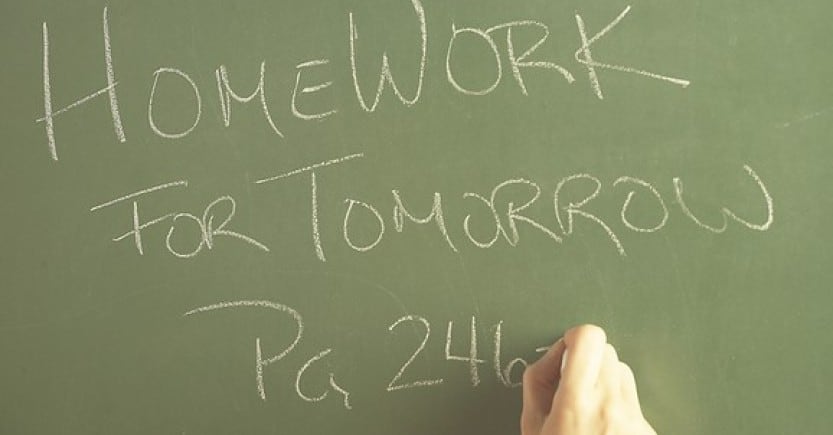12 Ways to Deal with Executive Dysfunction at School
Does your child have difficulty getting organized, completing assignments, or “forget” to turn in homework?
Does she have difficulty completing written assignments in a timely manner?
Does he find essays and extensive writing assignments frustrating or difficult to complete?
These may be symptoms of executive dysfunction (ED). Students with attention deficit disorders often experience these issues, as do many with Tourette syndrome.
First let’s look at what we mean by “executive function.” Executive function involves the mental activities needed to:
- Plan and organize
- Remain focused and ignore distractions
- Retrieve and recall information
- Have the ability to be flexible with changes in routine when encountering unexpected situations
- Executive functioning involves our “working memory” and the ability to use motor skills efficiently
Symptoms of Executive Dysfunction
 The symptoms of ED are many and varied. Many with ED often have deficits in motor skill functioning and areas that involve the use of working memory. They often have difficulty organizing their time and “forget” the tasks that need to be done. Students with ED may have average or above average intelligence but have difficulties in areas that relate to academic performance. The individual with attention deficit disorder/hyperactivity (ADHD) often experience difficulties in the area of executive function.
The symptoms of ED are many and varied. Many with ED often have deficits in motor skill functioning and areas that involve the use of working memory. They often have difficulty organizing their time and “forget” the tasks that need to be done. Students with ED may have average or above average intelligence but have difficulties in areas that relate to academic performance. The individual with attention deficit disorder/hyperactivity (ADHD) often experience difficulties in the area of executive function.
There is a significant overlap between ADHD and ED. Students with ADHD as well as those with ED have difficulty focusing, staying on task, are easily distracted and fail to complete tasks. These students need constant reminders and prompting and do best with structure and routine.
ED problems frequently become more apparent when students reach middle school because more demands and changes take place. Students with ED are often overwhelmed. When students have difficulties in school such as getting started and completing activities, turning in assignments or homework, finishing tasks—especially those that involve writing — teachers and parents often perceive these students as lazy, unmotivated, forgetful, and irresponsible, overlooking ED as a possible source of some of these issues.
A majority of students with ED have fine motor skills impairment, which may affect their handwriting and ability to complete written assignments in a timely manner. Essays and assignments that require extensive writing are particularly frustrating for these students. They often have difficulty sequencing their ideas, retrieving words and editing their work because ED involves working memory. It takes longer for these students to retrieve this information and process it into written form. Retrieving information for them is like trying to find something in a file that is not organized; you know it’s there you just can’t locate it quickly. They may also have difficulty “showing” their work in math, but can come up with the answer. Working memory deficits and the inability to sequence information to complete tasks that involve multiple steps can be frustrating for the student as well as the teacher. This student appears to understand the process one day but “forgets” how to do it later. This requires the directions and concepts to be repeated over again by the teacher to the student.
Students with ED often have poor time management skills and lack a perception of time and how long it will take to complete a task. They often forget to put the necessary materials to do their homework in their backpack and also fail to check their planners, and forget what assignments are completed and what assignments need to be finished and turned in. When they do remember to do the assignments they often “forget” to turn them in. Appropriate accommodations and support can be beneficial to students with ED.
Strategies
Below is a list of strategies and accommodations that can help support and assist students with Executive Dysfunction in the school setting.
- Music can help a student with storing, sequencing and retrieving information. Listening to music while doing written assignments in class or homework often helps the student stay focused and retrieve information.
- Visual organizers such as written directions and assignments, calendars, schedules and visual timers can also be very beneficial. Color-coding books, binders, notebooks, and other materials will help keep things organized and easier for the student to locate.
- Additional time to complete written assignments.
- A notebook or planner to record all assignments.
- Having the teacher check to see they are recorded properly.
- Having an extra set of textbooks for home.
- Providing positive feedback and encouragement
- Using incentives with a goal.
- A checklist and extra time at the end of each period to pack up materials.
- Weekly Progress reports with incomplete assignments listed can assist students to organize and complete tasks.
- Additional time to complete homework and classwork.
- Verbal reminders directly to the student to turn in assignments.
Working together, parents and educators can find many ways to help students with executive dysfunction be successful.
Donna Sakuta is a Florida-certified professional educator. She has served as executive director and education/advocacy representative for the Tourette Syndrome Association of Florida.










My child received really good marks on his kindergarten report card with the exception of “being able to complete tasks on time,” and appears to be distracted easily, struggles with writing assignments, and shows some of the other qualities noted in this article. We will try some of the strategies mentioned to see if they can help him stay on task! Glad I came across this article.